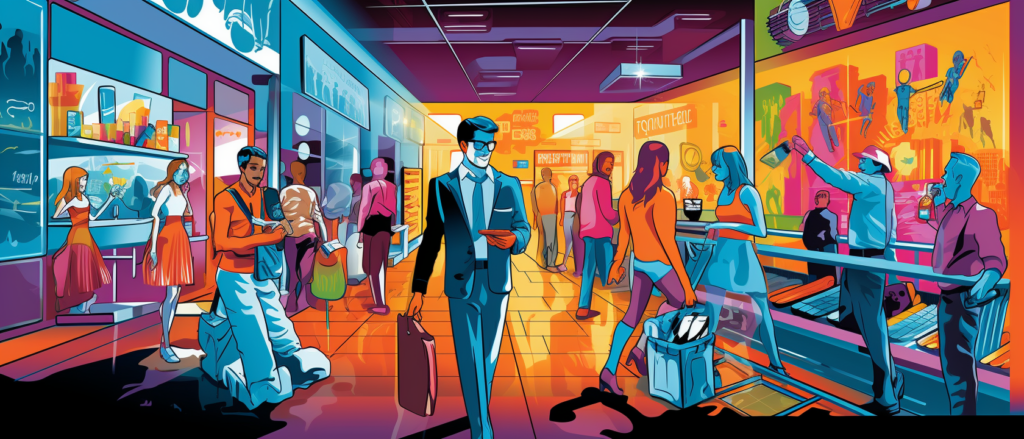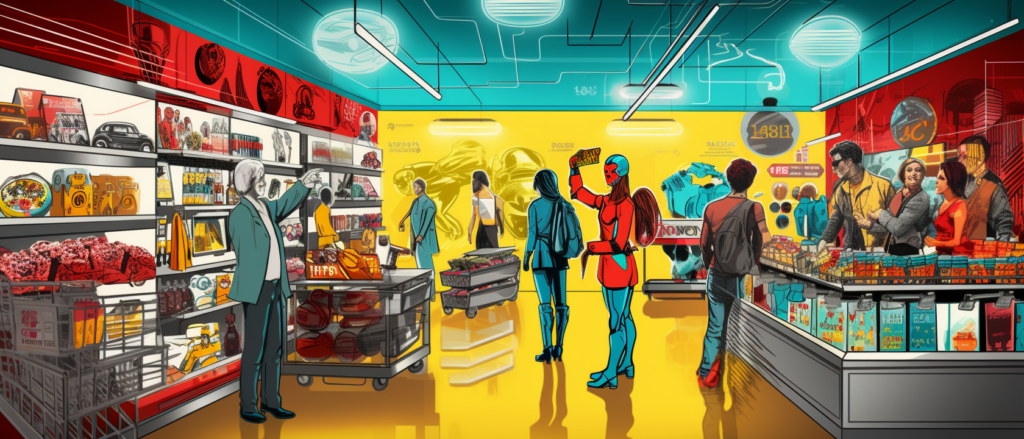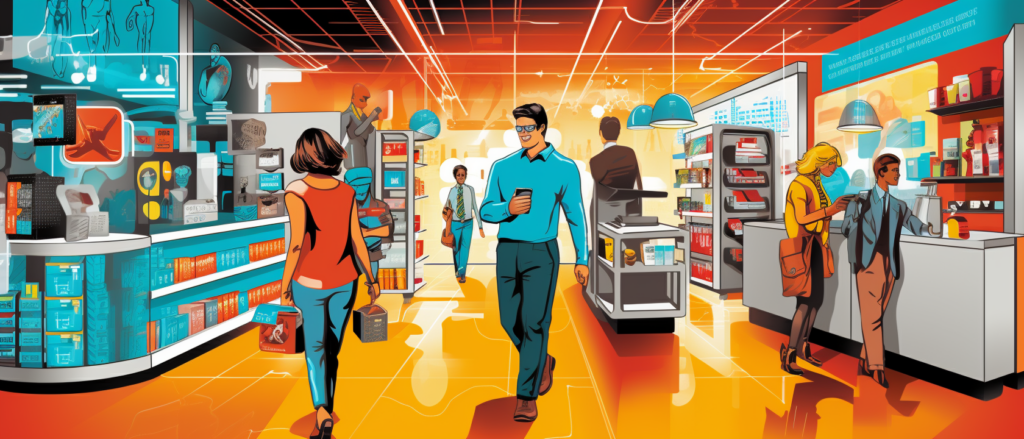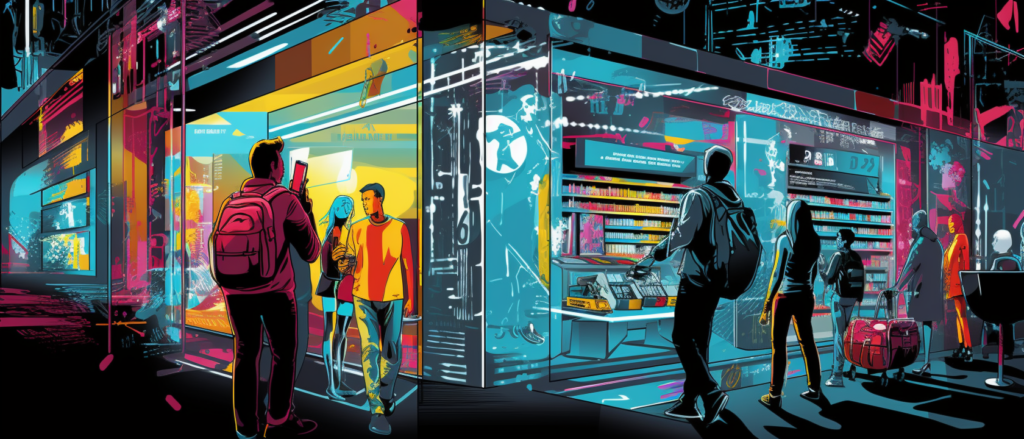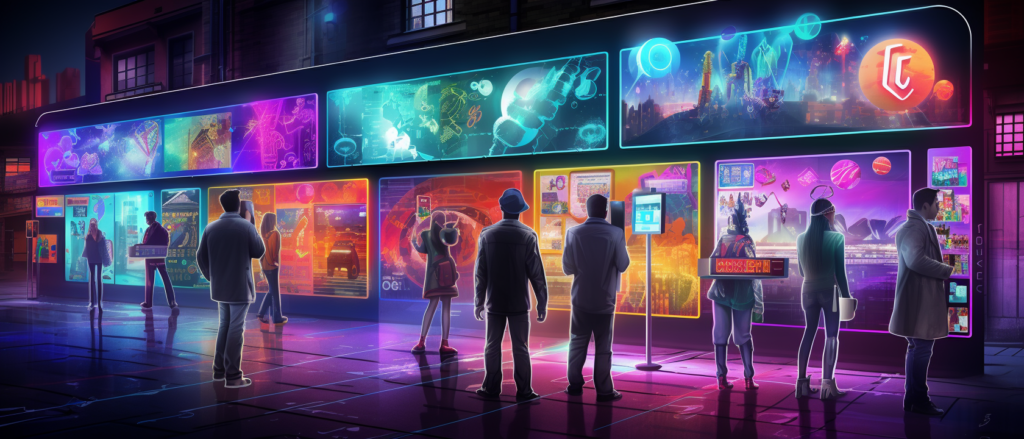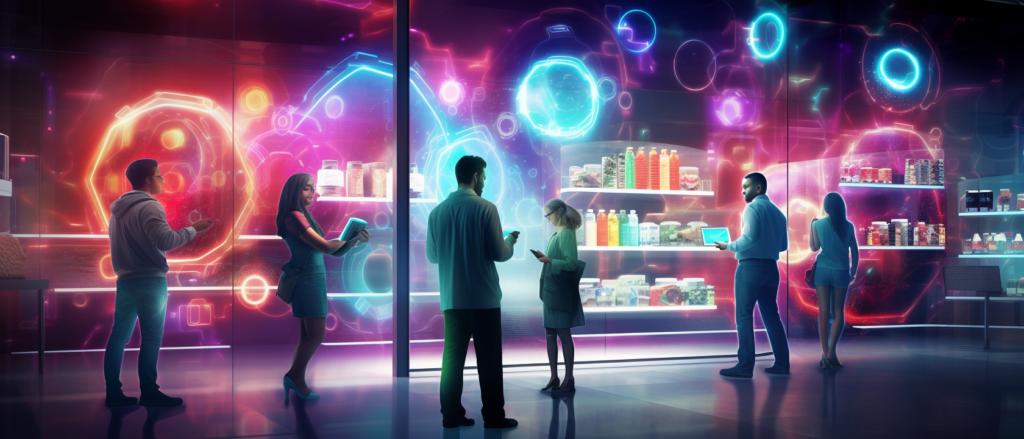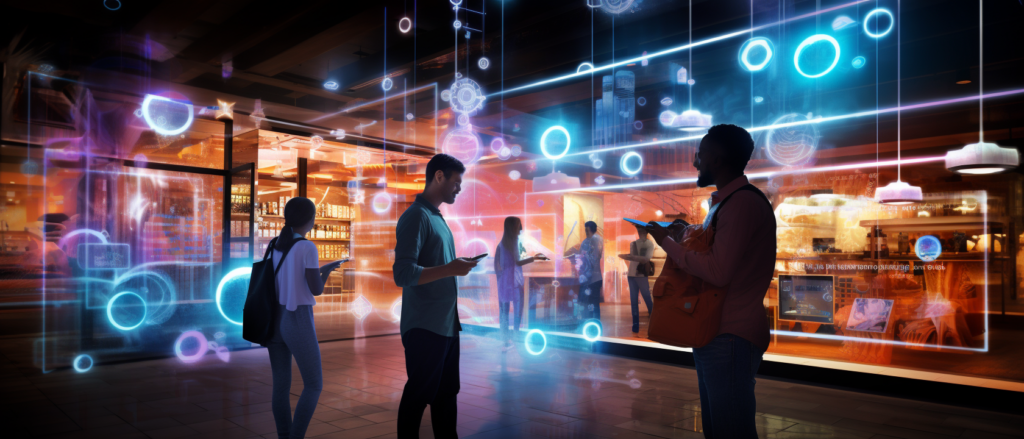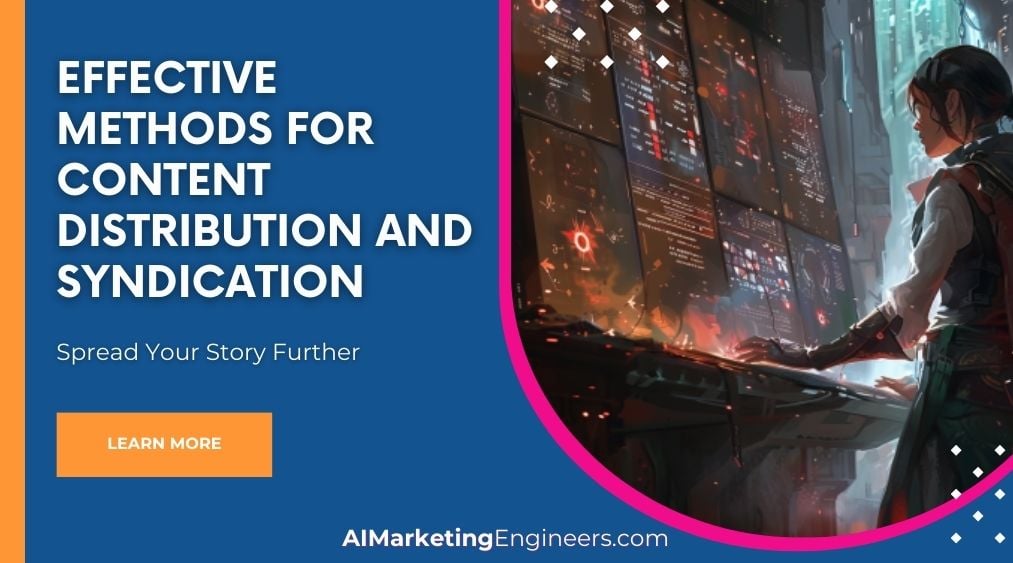Key Takeaways
✅ Personalized Shopping Experiences: Picture walking into a store where everything feels like it's handpicked just for you. That's what AI brings to the table. It's like having a personal shopper in your pocket, guiding you to products you'll love and deals you won't want to miss.
✅ Optimized Supply Chains: Have you ever wondered how your favorite products are always in stock, yet there's hardly any waste? It's all about smart AI forecasting demand and managing inventory like a pro. Retailers are saving big bucks and staying super efficient, making sure the shelves are stocked just right without overdoing it.
✅ Enhanced Customer Service: Nobody likes to wait on hold or deal with slow service, right? Well, AI is stepping in as the new customer service superstar - always ready, always helpful. Chatbots that can chat like humans and systems that understand your every need are making shopping smoother and more pleasant.
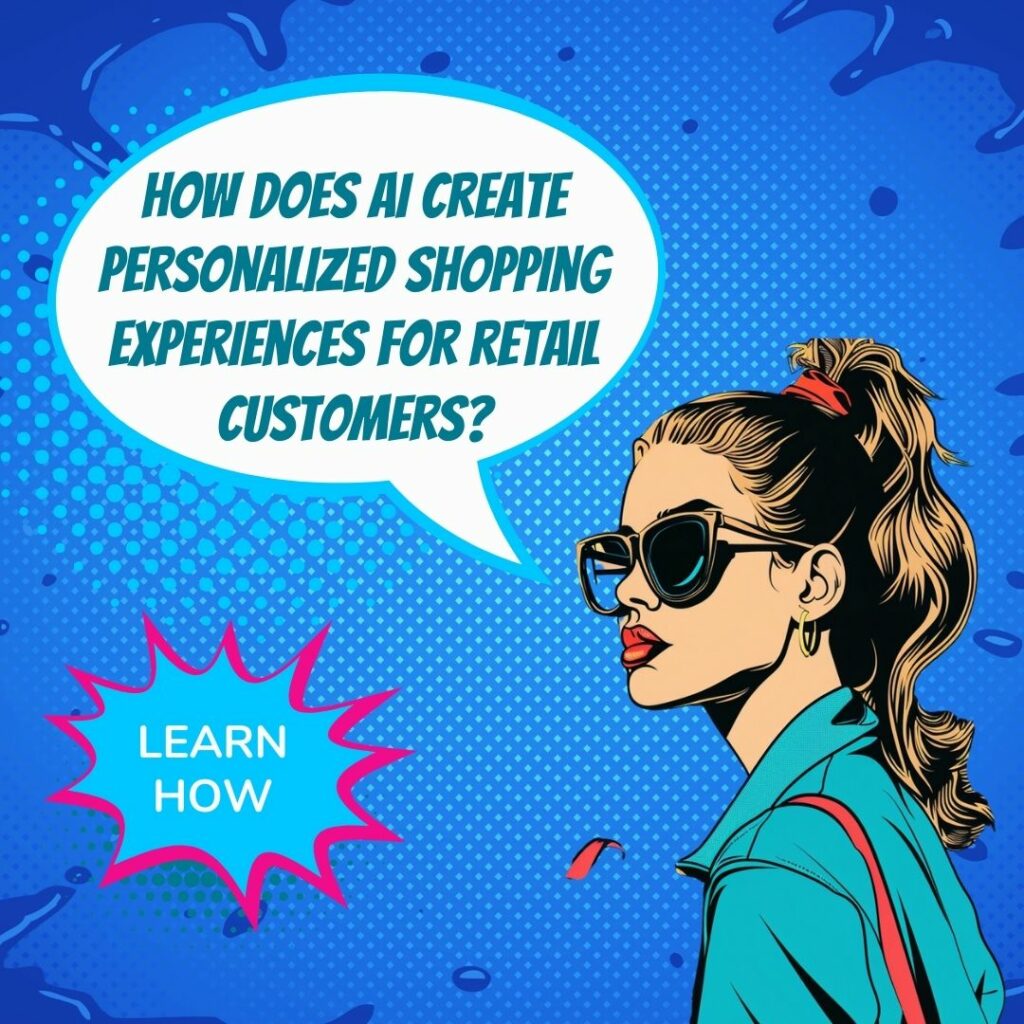
Introduction
Have you ever stopped and thought about how shopping has changed? From the days of sifting through endless racks to now having a virtual wishlist curated in seconds, the evolution is stunning. AI in Retail isn't just a futuristic concept; it's happening right here, right now, creating Personalized Shopping Experiences and Optimized Supply Chains that feel like magic.
In today’s retail world, there's no such thing as one-size-fits-all. Your style, your choices, and your convenience matter more than ever. And what's quietly powering this transformation? It's the silent brain behind the scenes - Artificial Intelligence. From knowing what you want before you do to having your back when you need support, AI is the unsung hero of the modern shopping saga.
As we step foot into this fascinating arena of AI-driven retail, we're not just talking theories. We've got real-world success stories, cutting-edge trends, and, most importantly, hands-on strategies that could revolutionize your revenue. So, if you're ready to peek into the future (which is actually the present) and leverage AI for a winning retail strategy, stick around. We’re about to unfold some seriously actionable insights that'll make you rethink how you shop and sell. Ready to take the leap into a world where shopping feels personal again? Let’s go!
Top Statistics
| Statistic | Insight |
|---|---|
| Global AI in Retail Market Size: Valued at $2.97 billion in 2020, expected to grow at a CAGR of 34.4% from 2021 to 2028. (Source: Grand View Research) | Witnessing this sharp rise, it's clear that AI in retail is not just a trend; it's the future, weaving itself into the very fabric of shopping experiences. |
| Consumer Demand for Personalization: 91% of consumers are more likely to shop with brands offering personalized recommendations. (Source: Accenture) | Personalized offers are not just nice to have; they're a decisive factor in where consumers choose to spend their money, showing the power of personalization in retail. |
| Impact of AI on Supply Chains: AI can reduce forecasting errors by up to 50%, increasing inventory turns by 65%. (Source: McKinsey & Company) | This stat highlights how AI is a game-changer, bringing precision and efficiency to the retail supply chain, ultimately saving time and money. |
| AI Disruption Timeline: 79% of retail and consumer goods executives predict AI disruption within the next three years. (Source: IBM) | It's not a distant future, but an imminent overhaul, indicating that retailers need to gear up for the changes AI will bring sooner rather than later. |
| Adoption of AI Personalization: By 2025, 80% of retailers plan to implement AI for personalization services. (Source: Capgemini) | It seems nearly every retailer is boarding the AI personalization train, aiming to offer that 'just for you' feeling to keep customers coming back. |
Personalized Shopping Experiences with AI
Ever walked into a store and felt like it just gets you? Imagine a world where shopping feels like a chat with a good friend who knows your taste. This isn't too far off, thanks to AI. What it does is pretty cool - it takes a peek at your shopping habits and creates a personalized experience just for you. So, how does this magic happen? AI uses things like recommendation engines to suggest products that you might like. It's like when you watch a show online, and the next day, you get a bunch of movie recommendations similar to what you just watched.
And it's not just about what you might like. AI is also keeping an eye on how you like to shop – are you a late-night browser or an early-bird deal hunter? Stores are using AI to spot these patterns through behavioral analysis. Have you ever wondered how some products you talked about suddenly show up in ads? Yep, that's AI in action, segmenting customers into different groups and tailoring experiences just for them. When done right, it's a win-win: shoppers get a personal touch, and stores see a boost in customer satisfaction.
Optimizing Supply Chains with AI
Now, let's take a look behind the scenes at supply chains. It's all about having the right products at the right place and time, without ending up with a pile of unsold items. AI makes some pretty smart guesses on what things you'll buy next. This process, called demand forecasting, helps stores stock up wisely. Instead of a one-size-fits-all approach, AI tailors stock levels to real-time demand, making sure your favorite products are always on the shelves.
Inventory management can be a real headache, but AI eases that pain by monitoring stock levels and predicting when a restock is needed. It gets better - AI also has a role in logistics optimization, finding the quickest and cheapest ways to move products around. This isn't just about cutting costs – it means less waiting for you to get your hands on the goodies you've ordered. And guess what? Reduced costs often mean better prices for shoppers, too.
The Roadblocks and Silver Linings of AI in Retail
Implementing AI sounds great, but it doesn't come without its hiccups. Think about all the data AI needs to function – there’s an enormous responsibility to keep it safe and private. Data privacy and security are huge concerns for both shoppers and stores. And then there's the talent - you need people who know their way around AI, and they’re not easy to find, let alone afford.
Despite these challenges, there's a lot of room for stores to innovate and grow. With AI, small and medium stores might provide the kind of personal touch that gets you coming back for more. And larger stores can manage their vast networks more efficiently. The possibilities for retail innovation are vast, from creating exceptional shopping experiences to streamlining complex operations.
AI's Next Stops in Retail: What's Around the Corner?
The future of shopping is looking quite high-tech with new trends popping up. Computer vision is one – it’s like having eyes everywhere, making checkouts faster or even unnecessary (ever heard of stores without cashiers?). Imagine chatting with a smart mirror that gives you style recommendations, thanks to natural language processing.
And let's not forget about augmented reality – you could see how a couch looks in your living room before even buying it. Shopping might become an immersive adventure where trying and buying are blended into one seamless experience. Innovative applications of AI could very well redefine how we think about shopping, making it more intuitive, interactive, and, yes, fun.
AI Marketing Engineers Recommendation
Recommendation 1: Implement AI-Powered Personalization Engines: Start using AI-driven personalization engines on your retail platform. Collect data on your customer's preferences, browsing patterns, and purchase history to offer them highly tailored product recommendations. According to a survey by Accenture, 91% of consumers are more likely to shop with brands that recognize, remember, and provide relevant offers and recommendations. The outcome? Increased customer satisfaction, loyalty, and boosted sales.
Recommendation 2: Optimize Inventory with Predictive Analytics: Leverage AI for predictive analytics in managing your stock. By analyzing past sales data, seasonal trends, and current market conditions, AI can forecast future product demand accurately. This can help retailers reduce overstock and stockouts—two of the main fears in retail inventory management. Retailers like Walmart have successfully used predictive analytics to optimize inventory, resulting in cost savings and more efficient supply chains.
Recommendation 3: Streamline Operations with AI-based Supply Chain Automation: Innovate your supply chain with AI automation tools that can oversee logistic operations, demand forecasting, and warehouse management. Consider adopting platforms that use machine learning to constantly improve logistics efficiency. High-tech firms like Amazon use sophisticated AI to reduce shipping times and costs significantly. Why not see what such a shift could mean for your bottom line and customer satisfaction?
Relevant Links
Revolutionizing Retail with AI: From Personalization to Supply Chain Efficiency
- How AI Personalizes Your Shopping Habits
- AI: The Backbone of Today's Supply Chain
- Artificial Intelligence: Redefining the Future of Retail
- Emerging Tech Trends: What Retailers Need to Know
Maximize Your Marketing With AI and Analytics
- ChatGPT: The Secret Weapon for Creative Marketing Content
- Harness AI to Take Your Google Ads to the Next Level
- Analytics Unveiled: Turn Data Into Marketing Gold
- Predicting the Future: AI in Marketing Analytics
- Understanding AI's Role in Enhancing Email Marketing Strategies
AI in the Marketing Landscape: Trends and Strategies for 2024
- The Best Marketing Strategies for eCommerce Success
- Unlocking the Power of ChatGPT for Game-Changing Marketing
- The Future of SEO: Adapting to AI's Transformation of Digital Marketing
- Guide to Innovative Marketing: Standing Out in 2024
- Crafting Effective PPC Strategies That Cut Through the Noise
Conclusion
So, what have we learned about AI in Retail and how it's changing the way we shop and do business? Well, it's like having a super-smart friend who knows just what you like and makes sure you can get it without any fuss. Imagine walking into a store and, instead of wandering around lost, you're guided straight to the things you love. That's the kind of personalized shopping experience AI is making a reality.
But wait, there's more. It's not just about making shopping fun; it's also about getting those products to the shelves efficiently. Remember talking about supply chain optimization? AI is like the conductor of an orchestra, keeping everything in sync, from predicting what's going to be popular to making sure it's stocked just right – it all works together to cut down on waste and save money.
Now, sure, it's not all smooth sailing. We've got to think about stuff like keeping your data safe and finding folks skilled enough to keep the AI engines running. But remember those fancy new technologies we mentioned, like seeing through computers and talking to machines like they're people? These advancements could take shopping to a whole new level.
So, do you think we're ready to jump on board with AI? Are you excited about finding exactly what you want without the hassle and knowing your favorite store is doing its best to be smart with supplies? The future is knocking at the door — it sounds pretty cool, right? AI in retail is set to make our shopping smarter, more tailored to us, and who knows, it might just make those dreaded out-of-stock situations a thing of the past. Now, wouldn't that be something to look forward to?
FAQs
Question 1: What is AI in retail, and how does it enhance personalized shopping experiences?
Answer: AI in retail is all about smart tech getting to know shoppers better than ever. Imagine walking into a store or hopping online and everything you see is just your style. That's AI — it keeps tabs on what you like, suggests products that hit the mark, and makes sure your shopping experience feels like it's made just for you.
Question 2: How does AI optimize supply chains in the retail industry?
Answer: Think of AI as the ultimate planner in the retail world. It's like having a crystal ball that tells you what's going to be in demand. By sifting through tons of real-time data, AI makes sure that shelves are stocked just right, not too much, not too little. It's cutting down waste, saving cash, and making sure you get your stuff quicker.
Question 3: What are the key benefits of using AI in retail?
Answer: AI in retail is like that friend who's always got your back. It pumps up customer happiness, whips operations into shape, saves money, and sparks better decision-making. For retailers, it's like having a secret weapon to stay ahead in a game that never slows down.
Question 4: What are some common AI technologies used in retail?
Answer: Retail's tech toolbox is full of AI goodies. Machine learning is the brainy one that spots patterns and learns from them. Natural language processing is the chatterbox that understands human lingo. Computer vision is the eagle eye spotting trends, and predictive analytics is the fortune teller predicting what'll sell like hotcakes.
Question 5: How does AI improve inventory management in retail?
Answer: Ever wonder why your favorite stuff is always in stock? That's AI, busy predicting what will fly off the shelves. It pours over past sales, what folks are into, and the latest fads, making sure the stockroom's never too full or too empty. It's like having a super-smart shopping assistant who knows exactly what's needed.
Question 6: Can AI help retailers with dynamic pricing strategies?
Answer: Absolutely! AI's always got its eye on the numbers, shuffling prices in real-time. It looks at what people are ready to pay, what the other guys are charging, and a bunch of other signals. This helps shops stay in the sweet spot, making both wallets and bottom lines happy.
Question 7: How does AI enhance customer service in retail?
Answer: AI's the unseen hero in customer service. It dishes out tips, racks up style points with recommendations, and never sleeps on the job — thanks to chatbots. It can even tell how customers feel about their shopping, making sure every "How may I help you?" hits just the right note.
Question 8: What are the challenges of implementing AI in retail?
Answer: It's not all smooth sailing with AI in retail. There are big questions about keeping customer data under wraps, feeding AI enough of the good stuff (quality data), and making sure it doesn't elbow people out of jobs. Retailers have to play it smart and make sure AI's used for good.
Question 9: How can retailers ensure the responsible use of AI?
Answer: Being responsible with AI is key. Retailers should stick to a moral compass, be crystal clear about how they use data, and invest in their people. The goal? To make sure AI is a team player that bolsters human smarts, not a replacement.
Question 10: What are some best practices for implementing AI in retail?
Answer: To hit the bullseye with AI, retailers should have a game plan. Kick off with a solid strategy, pick your battles, pour into precious data, and team up with wizards in the field. And remember, it's not a one-time thing. Keep an eye on your AI, tweaking and improving as you go.
Academic References
- Peng, J., & Zhao, X. (2019). Personalized Retail: The Future of AI in Retailing. Journal of Business Research, 104, 449-460. In this insightful study, Peng and Zhao dissect the role of AI in carving out personalized shopping experiences. They pinpoint how AI's data crunching and customer behavior analysis leads to a significant upswing in customer satisfaction and loyalty. It's a compelling piece that puts a spotlight on AI as a game-changer in the retail world.
- Wang, X., et al. (2020). AI for Retail: A Comprehensive Survey. IEEE Transactions on Industrial Informatics, 16(8), 5325-5340. Wang and colleagues embark on a sweeping survey that unpacks AI's diverse applications across the retail landscape. From refining the personalized shopper's journey to streamlining supply chains, this survey paints a vivid picture of AI's burgeoning potential to revamp the traditional retail experience.
- Mele, T. C., & Liao, S. C. (2019). The Impact of Artificial Intelligence on Supply Chain Management. International Journal of Production Research, 57(16), 4923-4938. When Mele and Liao tackle the massive influence of AI on supply chain management, they're not just talking logistics. This article explores how AI is reshaping the supply chain from top to bottom, slashing costs, and sprucing up efficiency in ways we've only just begun to understand.
- Rana, A. S., et al. (2020). AI-Driven Retailing: A Comprehensive Review and Future Research Agenda. Journal of Retailing and Consumer Services, 56, 102176. Discover what the fuss is all about with AI in retail, thanks to this comprehensive review by Rana and team. They dive into the deep end of AI's role in personalizing the retail experience and smoothing out the kinks in supply chains. It's a peek into the crystal ball of retail, figuring out where AI can take us next.
- Srivastava, S., et al. (2019). Artificial Intelligence in Supply Chain Management: Opportunities and Challenges. Computers & Industrial Engineering, 135, 105528. Srivastava and company lay it all out on the table, discussing what's up for grabs when AI and supply chain management mix it up. Opportunities abound for those willing to grapple with the hurdles of data privacy, security, and the hunt for AI-savvy staff. This article doesn't shy away from the rough patches but spotlights the shiny potential of AI in supply chains

